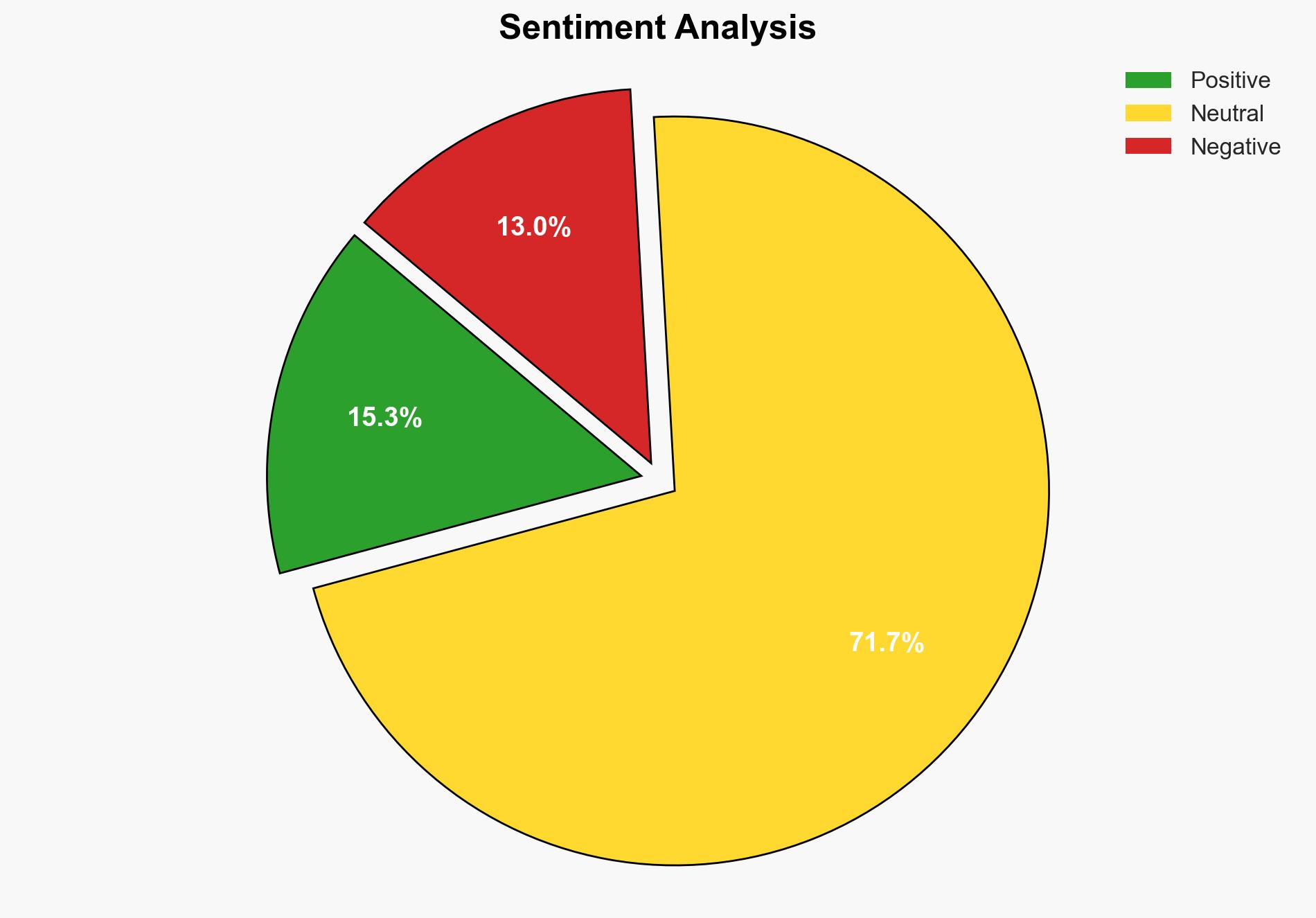Microsoft Warns 1 Billion Windows UsersDo Not Use Password – Forbes
Published on: 2025-03-28
Intelligence Report: Microsoft Warns 1 Billion Windows UsersDo Not Use Password – Forbes
1. BLUF (Bottom Line Up Front)
Microsoft has announced a significant shift away from traditional password usage for its Windows users, advocating for the adoption of passkeys and multi-factor authentication (MFA) as more secure alternatives. This change aims to enhance security by reducing the risk of password-related breaches and phishing attacks. The strategic move is expected to impact over one billion users globally, with implications for cybersecurity practices across various sectors.
2. Detailed Analysis
The following structured analytic techniques have been applied for this analysis:
General Analysis
Microsoft has confirmed a major update that will phase out passwords in favor of passkeys and MFA. This transition is driven by the vulnerabilities associated with passwords, which are susceptible to being forgotten, guessed, or stolen. Passkeys, linked to physical hardware devices, offer a more secure authentication method as they require physical access to the device, making them resistant to remote phishing attacks.
The update is part of a broader strategy to improve user experience and security by optimizing passwordless sign-in processes. This shift aligns with industry trends towards more secure authentication methods, such as those promoted by the FIDO Alliance. The move is expected to accelerate the adoption of passkeys as a standard authentication method.
3. Implications and Strategic Risks
The transition to passkeys and MFA presents several strategic implications:
- Cybersecurity Enhancement: The reduction in password usage is expected to decrease the frequency of successful phishing attacks and unauthorized access incidents.
- Adoption Challenges: Users and organizations may face challenges in adopting new authentication methods, requiring education and support to ensure a smooth transition.
- Technological Dependency: Increased reliance on hardware-based authentication could pose risks if devices are lost or compromised.
These changes could affect national security by strengthening defenses against cyber threats and reducing vulnerabilities in critical infrastructure. However, the transition period may present opportunities for adversaries to exploit gaps in security practices.
4. Recommendations and Outlook
Recommendations:
- Encourage organizations to implement passkey and MFA solutions promptly to mitigate security risks associated with password usage.
- Develop comprehensive user education programs to facilitate the transition to new authentication methods.
- Enhance regulatory frameworks to support the adoption of secure authentication technologies across industries.
Outlook:
Best-case scenario: Widespread adoption of passkeys and MFA leads to a significant reduction in cyber incidents, enhancing overall cybersecurity resilience.
Worst-case scenario: Slow adoption and implementation challenges result in continued reliance on passwords, leaving systems vulnerable to attacks.
Most likely outcome: Gradual adoption of passkeys and MFA, with ongoing improvements in user education and technology integration, leading to enhanced security over time.
5. Key Individuals and Entities
The report mentions significant individuals and organizations but does not provide any roles or affiliations. Key entities involved in this development include Microsoft and the FIDO Alliance. The successful implementation of these changes will require collaboration among technology providers, regulatory bodies, and end-users.





